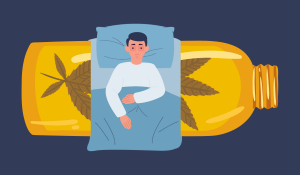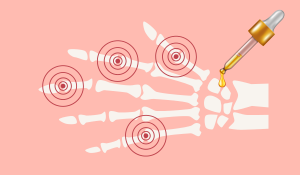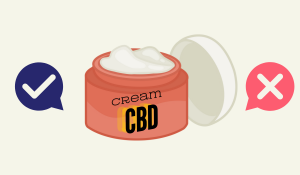CBD can have negative interactions with prescribed medication. It interacts with enzymes in the liver, making it difficult for pills to metabolize. In this way, CBD may interact with drugs and make symptoms worse by hindering the absorption of the specific drugs.
Cannabinoid, or CBD for short, is contained in the cannabis flower. It is a natural compound that provides a variety of therapeutic benefits. It is used to treat ailments ranging from heart disorders to pain relief. However, there are health risks when taking CBD with prescription medication.
Liver Enzymes and Medication
Liver enzymes play a major role in protecting your liver and overall health. The liver contains a group of enzymes, known as cytochrome p450, that help break down any substances you consume. These include:
The enzymes help prevent drugs and toxins from causing health problems, such as hepatitis and liver disease. The liver, specifically, cytochrome p450 enzymes are essential to protecting you from the toxicity of medication.
CBD and Prescription Medication Interaction
CBD has can have a negative interaction with prescribed medicines. It inhibits cytochrome p450 enzymes from functioning properly, which makes it difficult for pills to metabolize. As a result, CBD using enzyme from liver lessens the effectiveness of meds.
Risk of Taking CBD With Prescription Medication
CBD could make certain health conditions worse. For instance, individuals suffering from epilepsy may experience more aggressive seizures if they take CBD with certain anti-seizure medicines. It may increase seizure activity by hindering the absorption of antiepileptic drugs, such as norclobazam and clobazam. CBD can also interfere with chemotherapy drugs, sedatives and blood thinners. The potential health risk associated with combining CBD with certain prescriptions is a genuine concern for many people.
Stay Safe When Taking CBD and Meds
Use CBD with caution, especially if you are taking other medications. There are instances where CBD has a negative interaction with these drugs, which can make your medical condition worse. This occurs because it interferes with prescription medication using enzyme from liver. Before taking CBD, consult with a physician to learn more about how it affects your health.

If you've ever wondered about using CBD for insomnia, you should know how CBD helps anxiety, stabilizes your sleep-wake cycle, and makes falling asleep easier.
Read More
CBD-infused salad dressing: Imagine a fresh, crisp salad enhanced with a light, herbaceous vinaigrette containing your daily dose of CBD. To create this, you’ll need...
Read More
1. What Is CBD and Why Is It a Game-Changer for Skin Health? CBD (cannabidiol) is a natural compound extracted from the hemp plant. Unlike...
Read More
The Legal Landscape of CBD The 2018 Farm Bill and Its Impact The signing of the Agriculture Improvement Act of 2018, commonly known as the...
Read More
Breakthrough #1: CBD’s Role in Chronic Pain Relief Chronic pain robs people of precious moments. A 2021 study in the Journal of Pain Research highlights...
Read More
Understanding Arthritis Pain Arthritis is a chronic condition that affects daily activities, from opening jars to taking walks. Here’s a look at the two most...
Read More
Types of Pain CBD May Alleviate CBD shows promise in managing various types of pain: CBD vs. Traditional Painkillers Traditional painkillers like opioids can be...
Read More
CBD Cream Side Effects – Focusing on Topical Applications How CBD Creams are Made Ever wondered how CBD creams come to life? It’s a fascinating...
Read More
Therapeutic Uses of CBD Managing Chronic Pain with CBD Struggling with chronic pain? CBD might help. Studies suggest it can reduce inflammation and alleviate discomfort,...
Read More
Concerns About Potential Side Effects on Liver and Kidneys Despite its growing acceptance, concerns about CBD’s effects on vital organs like the liver and kidneys...
Read More